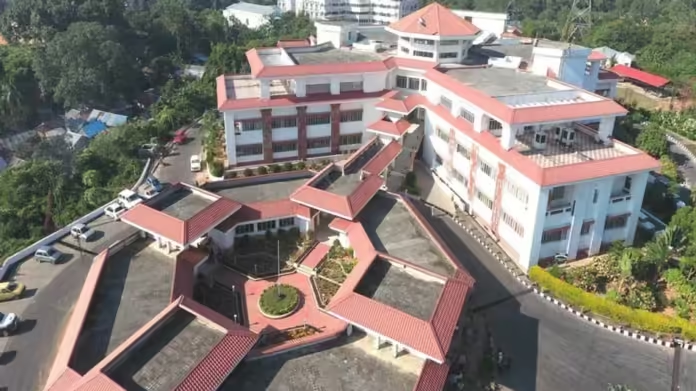The Tripura High Court has granted bail to Nikhil Sarkar, an HIV-positive individual accused under the Narcotic Drugs and Psychotropic Substances (NDPS) Act. This decision was based on Sarkar’s right to a dignified life, as highlighted by his health condition.
Sarkar faced serious charges under the NDPS Act, which typically carries stringent bail conditions due to the severity of drug-related offenses. However, his legal team argued that his health condition required special consideration. They emphasized that his status as an HIV-positive individual made his continued incarceration a threat to his life and well-being, particularly given the need for specialized medical care and a sanitary environment.
The High Court acknowledged these concerns and considered the humanitarian aspects of the case. The judges stressed that the right to life, enshrined in Article 21 of the Indian Constitution, extends to all individuals, including those accused of serious crimes. They noted that denying Sarkar bail could exacerbate his health issues, effectively amounting to a violation of his constitutional rights.
The court’s decision to grant bail was also influenced by the current healthcare infrastructure within the prison system. It was determined that the facilities available were inadequate to meet Sarkar’s specific medical needs. The court highlighted the importance of ensuring that individuals in custody receive appropriate medical treatment, regardless of the charges against them.
In their ruling, the judges mandated that Sarkar must adhere to strict conditions while out on bail. These conditions include regular reporting to the local police station and refraining from any activities that could further implicate him under the NDPS Act. Additionally, Sarkar is required to continue his medical treatment and follow all prescribed healthcare protocols.
This landmark decision underscores the judiciary’s commitment to upholding the fundamental rights of all individuals, even those accused of serious offenses. It reflects a broader understanding of justice that balances legal accountability with humane treatment, particularly for vulnerable individuals with severe health conditions.
The Tripura High Court’s ruling sets a significant precedent in recognizing the health and dignity of accused persons, ensuring that legal proceedings do not compromise their fundamental rights. This case highlights the evolving nature of judicial consideration in India, where the rights of the individual are increasingly being balanced against the imperatives of justice and public safety.




